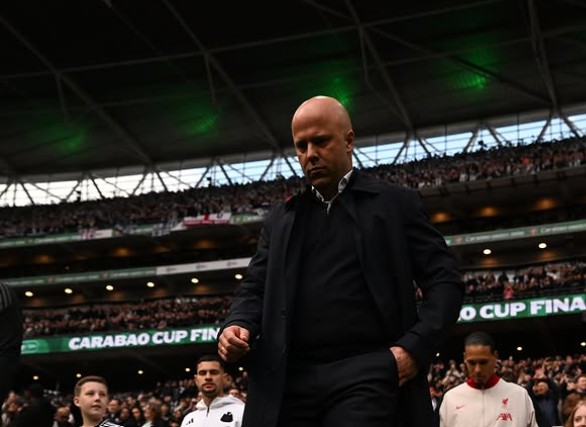Arne Slot has worked hard to bring calm to Liverpool after Jürgen Klopp’s “heavy metal” era, and the Dutchman is on his way to bringing the Premier League title back to Merseyside.
Slot’s upcoming performance becomes even more impressive when you take into account all the external noise that has surrounded Anfield this season. The contract situations of three key players have dominated the discussions, despite their strong performances on the pitch.
Read: Moyes goes new ways – should something as unheard of as sign Liverpool player!
In short, there has been a lot to talk about, and the club’s owners, Fenway Sports Group (FSG), have laid the groundwork for yet another topic of discussion. It looks like Liverpool are moving into the multi-club model. FSG are keen to revive yet another giant, having performed miracles on Merseyside, and they have now set their sights on a takeover of Spanish club Málaga.
Liverpool have reportedly held exploratory talks with a number of Spanish clubs over a potential takeover, including Levante, Elche, Espanyol, Getafe and Real Valladolid.
But it seems that the Reds have set their sights on second-division club Málaga. The 2012/13 Champions League quarter-finalists have struggled financially after their heyday with the likes of Isco and Manuel Pellegrini, and were even relegated to the third division before securing promotion last season.
After facing Málaga in February, Liverpool are now chewing on a contract bid. There is talk of taking over the shares of 51% owner Sheikh Abdullah Al Thani from Qatar. However, any takeover will be complicated due to Málaga’s complex ownership situation – the club has been under administration since 2019.
Liverpool will also have to contend with Paris Saint-Germain, who will also be in the loop. Some reports suggest that a deal is close, as Qatar Sports Investments (QSI) is also looking to expand its empire.
Read on English clubs: Trent Alexander-Arnold leaves millions at Liverpool anyway
Does Liverpool own other clubs?
FSG currently owns the Boston Red Sox (MLB), Pittsburgh Penguins (NHL), RFK Racing (NASCAR), and Boston Common Golf (TGL), but Liverpool is their only soccer club. Their intention to expand has been evident in recent years, especially after Michael Edwards returned as the club’s football CEO.
“One of the biggest factors in my decision is the commitment to acquire and manage an additional club, and to grow this part of the organisation,” Edwards said in an FSG statement following his appointment. “I believe that in order to remain competitive, investment and expansion of the current football portfolio is necessary.”
Liverpool have previously resisted the temptation to move into the multi-club model, unlike many other Premier League clubs. Manchester City and Chelsea have high-profile multi-club projects with global football empires.
Although Liverpool have considered buying a Brazilian club, they prefer to start the process in Europe.
Is Liverpool allowed to own another club?
Multi-club ownership has long been controversial, but UEFA has had to relax its rules. Last year, they “on a probationary period” allowed clubs under common ownership to participate in the same tournament.
This concept isn’t new – it’s been around since the 1900s, with pioneers like Ken Bates and Daniel Levy. The Pozzo family was among the first to build a football ecosystem, and today City Football Group (Manchester City) and BlueCo (Chelsea) are among the most significant.
While traditionalists may be skeptical, multi-club ownership is perfectly legal.
Why does Liverpool want a multi-club project?
While not everyone is a fan of the idea, multi-club ownership offers a number of benefits – and Liverpool will be in on the fun.
Commercial gains, such as brand expansion, are one factor, but Edwards’ main interest probably lies in the opportunity to develop young talent.
Clubs under the same ownership often play in similar styles, which helps development. These “sister clubs” can be used to give young players playing time, with the goal of eventually becoming stars in the main club.
Overall, multi-club ownership provides more control and structure in player development. It also allows players to increase in value on loans, which can provide big gains in a later sale.
Such an empire also enables the sharing of ideas and resources between clubs, as well as the expansion of scouting networks.













